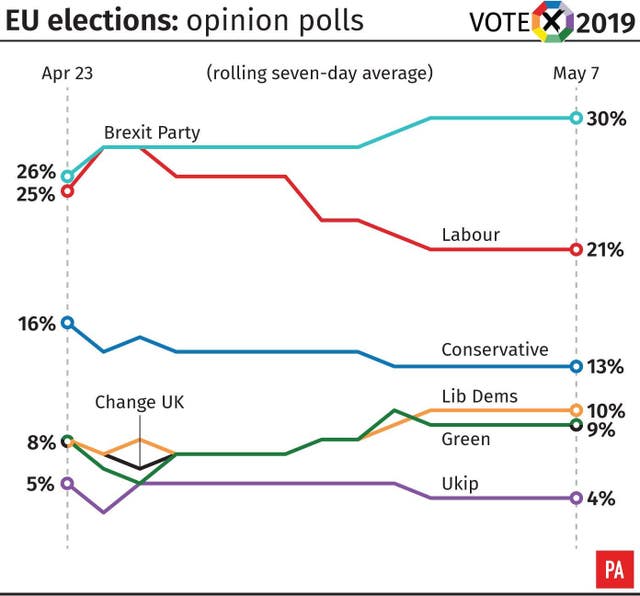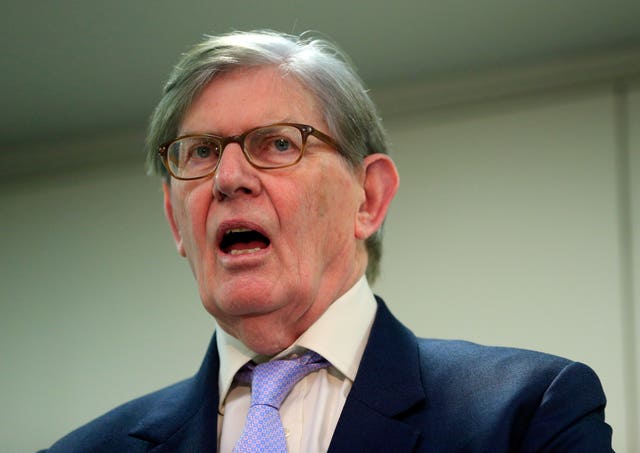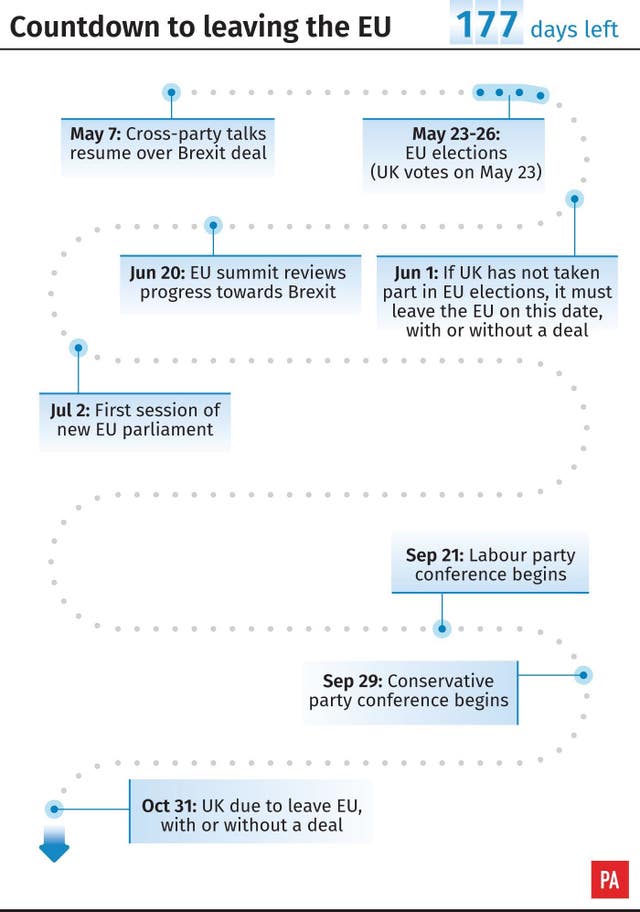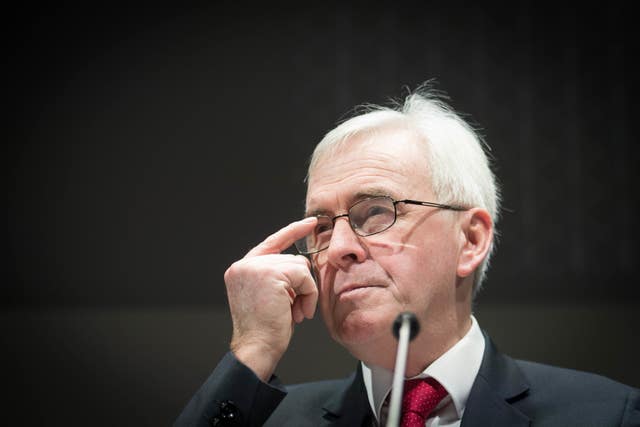Pressure on May to set timetable for departure intensifies
Theresa May will meet the chairman of the powerful Tory 1922 Committee to discuss her future.

Pressure on Theresa May to set a firm resignation date has increased ahead of a meeting with the chairman of the powerful 1922 Committee of Tory backbenchers.
Tuesday’s meeting with Sir Graham Brady comes after the 1922 Committee requested “clarity” about the Prime Minister’s timetable for standing down and triggering a leadership contest.
Meanwhile, senior Tory activists will consider the question of Mrs May’s leadership at an emergency meeting of association chairmen next month.
A revolt against Mrs May could become more likely if talks with Labour result in a Brexit compromise which would be unacceptable to Tory Eurosceptics.
Government ministers and their Labour counterparts will resume talks in Westminster aimed at breaking the deadlock.
Foreign Secretary Jeremy Hunt said both sides need to be willing to compromise.
Mr Hunt said that after both main parties lost ground in the local elections in England, it was a “crucial week” coming up for the Brexit negotiations.

However, he said that he did not believe a permanent customs union with the EU – supported by Labour – offered a “sustainable, long-term solution” to the current impasse.
“I personally think that any kind of permanent customs union wouldn’t work in the long run because our economy is too big, but let’s see what the parties come up with,” he told BBC Radio 4’s Today programme.
Anger within the Tory ranks at Mrs May has been fuelled by the potential for a softer Brexit deal with Labour.
Leading Eurosceptic Sir Bill Cash told the Press Association: “The time has come for her to resign.

“She needs to be given a date. The sooner the better. But it needs to be done in an orderly manner.”
Grassroots Tories will hold a no-confidence vote in Mrs May on June 15.
The vote by members at an EGM of the National Conservative Convention would not be binding, but would add pressure on Mrs May to quit if passed.
In a message to members of the convention, reported by the Conservative Home website, chairman Andrew Sharpe said they would be asked to vote on a motion stating that “we no longer feel that Mrs May is the right person to continue as Prime Minister to lead us forward in the negotiations” and “therefore with great reluctance ask that she considers her position and resigns”.
Mrs May has said she will step down if her Withdrawal Agreement is ratified, but – with the deadline for Brexit extended to the end of October – has not made clear how long she intends to stay if no deal is reached.

Sir Geoffrey Clifton-Brown, treasurer of the 1922 Committee, put the spotlight on a departure date by insisting Mrs May announce a “road map” for her resignation after the European elections set for May 23.
Brexit Party leader Nigel Farage told the Press Association: “I’m amazed she is still there.”
The resumption of Government talks with Labour comes amid increased tension between the two sides.
Shadow chancellor John McDonnell said he had no trust in Mrs May after reports emerged that she is ready to offer a temporary customs arrangement with the EU to the opposition.

Labour accused Mrs May of having “blown the confidentiality” of the talks.
But Downing Street rejected the claim, with Mrs May’s official spokesman saying: “I don’t believe that is the case. We have preserved the confidentiality of the talks.”
Cabinet discussed the Brexit talks for around an hour on Tuesday morning, said the spokesman.
“The Prime Minister said that while an agreement with the opposition had not been reached, the public had sent a clear message in the local elections that they want both of the main parties to get on with delivering Brexit,” said the spokesman.
“She said it was right to continue with the talks process.”
The spokesman said that at Cabinet “there was a broad understanding that there is a need to get on with this”.
Last week’s local elections, which saw disastrous results for Conservatives and disappointing losses for Labour, have increased pressure on both sides for a breakthrough in the cross-party talks, which have run on for over a month without producing agreement.
No formal deadline has been set for the conclusion of talks.
But it is thought likely that if no progress is made this week, the Government may move towards a process of indicative votes on Brexit options in the Commons. Mrs May has made clear that she would like both the Government and Labour to commit to respecting the outcome of any such votes.
The Prime Minister’s spokesman said: “What is absolutely vital is that we find a way forward which can command a stable majority in the House of Commons. That’s what the Prime Minister is working to achieve.”
Mrs May’s effective deputy David Lidington was leading the Government side in Tuesday’s Brexit talks at the Cabinet Office, with Brexit Secretary Stephen Barclay, chief whip Julian Smith, Environment Secretary Michael Gove and Number 10 chief of staff Gavin Barwell also expected to attend.





